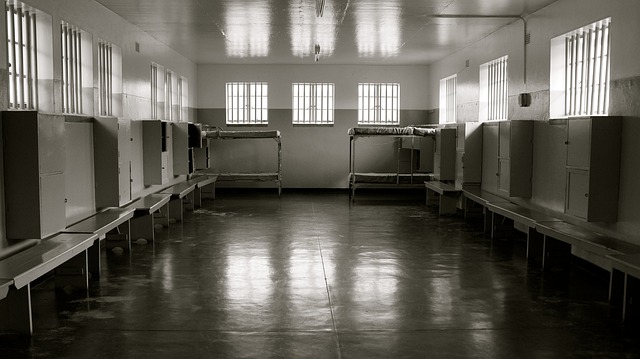Rural vs Urban DUI Legislation reveals stark differences in enforcement policies and employment impacts. Urban areas, with higher drunk driving rates, enforce strict blood alcohol limits and harsh penalties, affecting job prospects for individuals with past convictions. In contrast, rural regions prioritize rehabilitation and have more lenient approaches, but face challenges like limited job openings and conservative hiring attitudes. Efficient record clearance services mitigate the effects of DUI convictions in urban settings, while rural areas lack specialized support, complicating employment verification. These disparities significantly influence employment opportunities for those with DUI histories, underscoring the importance of understanding Rural vs Urban DUI Legislation.
“Uncovering the employment implications of DUI records, especially in contrasting rural and urban settings, is crucial for understanding the legal landscape’s impact on job seekers. This article delves into the key differences between rural and urban DUI laws, examining how these variations affect employment opportunities. We explore comprehensive record-clearing processes, highlighting challenges faced in rural areas due to limited resources. In contrast, urban legal systems offer efficient clearance with robust support services. By comparing these legal landscapes, we provide insights that empower job seekers navigating the complexities of rural vs. urban DUI legislation.”
- Understanding Rural and Urban DUI Laws: Key Differences
- The Impact of DUI Legislation on Employment Opportunities
- Clearing Records: A Comprehensive Look at Rural vs Urban Processes
- Challenges in Rural Areas: Limited Resources and Defense Options
- Urban Legal Systems: Efficient Clearance and Support Services
- Comparing Legal Landscapes: Implications for Job Seekers
Understanding Rural and Urban DUI Laws: Key Differences

In the realm of Rural vs Urban DUI Legislation, it’s crucial to understand that laws and penalties can vary significantly between jurisdictions. Rural areas often have less stringent enforcement policies compared to urban centers, which typically have higher rates of drunk driving incidents due to factors like population density and nightlife. This disparity results in key differences within the legislation framework.
For instance, while urban cities may enforce strict blood alcohol limits with harsher penalties for violations, rural towns might adopt a more lenient approach, focusing on public safety initiatives rather than severe punishment. These variations highlight the importance of navigating local laws when dealing with DUI cases, emphasizing the need for individuals to be aware of their rights and responsibilities in both settings.
The Impact of DUI Legislation on Employment Opportunities

The impact of DUI (Driving Under the Influence) legislation on employment opportunities varies significantly between rural and urban areas. In densely populated urban centers, strict DUI laws are often seen as a necessary tool to maintain public safety in the face of high traffic volumes and congestion. These laws can lead to more stringent background checks for potential employers, potentially affecting individuals with past DUI convictions but who have since turned their lives around. However, this can also create opportunities for rehabilitation and second chances, as many urban employers value diverse talent pools and are open to hiring those who demonstrate personal growth and responsibility.
In contrast, rural areas often face unique challenges regarding DUI legislation. With lower population densities, smaller towns may have fewer job openings, making it more difficult for individuals with a DUI history to find employment. Rural communities also tend to be more conservative when it comes to second chances, which can further limit opportunities for those seeking reintegration into the workforce after a DUI conviction. However, rural employers who recognize the potential of individuals with past DUI issues can play a crucial role in rehabilitating and supporting them, ultimately contributing to stronger, more resilient communities.
Clearing Records: A Comprehensive Look at Rural vs Urban Processes

Clearing records, particularly in the context of employment impact, presents distinct challenges and processes in rural and urban areas. In urban centers, where population density is high, record management often leverages advanced digital systems that streamline data access and deletion processes. Efficient urban DUI legislation facilitates swift clearing of records, ensuring individuals can seamlessly transition from one job to another without unnecessary barriers. This is achieved through standardized procedures and robust legal frameworks that safeguard privacy while promoting fairness.
In contrast, rural regions face unique hurdles due to lower population density and potentially limited technological infrastructure. Rural vs urban DUI legislation varies significantly, with rural areas often embracing more traditional methods of record keeping. While this may result in a slower clearing process, it also offers opportunities for enhanced personal connections and a deeper understanding of individual cases. Customized rural practices can cater to the unique needs of smaller communities, ensuring that record clearance remains accessible and supportive of local economic prospects.
Challenges in Rural Areas: Limited Resources and Defense Options

In rural areas, clearing employment records often presents unique challenges due to limited resources and fewer legal defense options compared to urban centers. The disparities between Rural vs Urban DUI legislation further complicate matters for individuals facing employment background checks. With less specialized legal aid readily available, rural residents might find themselves at a disadvantage when navigating the complexities of employment laws and regulations.
These areas often lack the dense concentration of legal professionals and support services typical of urban metropolises. As a result, securing expert advice on clearing criminal records or understanding the implications of DUI convictions on job prospects can be more difficult. This disparity underscores the need for targeted initiatives that bridge the gap between rural communities and accessible, affordable legal services.
Urban Legal Systems: Efficient Clearance and Support Services

In urban legal systems, the employment impact of clearing records is significantly different from rural areas, largely due to varying DUI legislation. Cities and metropolises often have more stringent laws regarding driving under the influence (DUI), which means that an individual’s record can be marked for longer periods. This has a direct impact on their employability as many urban employers conduct thorough background checks. However, efficient clearance services play a crucial role in mitigating these effects.
These urban legal systems have developed sophisticated mechanisms to process and clear records promptly. Support services such as legal aid, counseling, and rehabilitation programs are readily available, ensuring that individuals with DUI convictions can navigate the legal landscape and improve their employment prospects. The contrast with rural areas, where looser DUI legislation may exist, is notable; rural communities often lack specialized support services, making record clearance a more complex and lengthy process.
Comparing Legal Landscapes: Implications for Job Seekers

In comparing rural and urban DUI legislation, job seekers can encounter stark contrasts that significantly impact their employment prospects. Rural areas often have less stringent DUI laws, with lower penalties and more lenient sentencing guidelines, reflecting a general focus on rehabilitation over severe punishment. Conversely, urban jurisdictions tend to enforce stricter DUI regulations, featuring harsher fines, extended license suspensions, and mandatory ignition interlock devices, emphasizing deterrence and public safety.
This disparity has implications for individuals seeking employment in either setting. In rural communities, a DUI conviction might carry less weight on a job application due to the reduced impact on local transportation networks and services. Urban employers, however, may view a DUI offense as a greater risk, considering the dense population, heavy traffic, and higher public transportation dependency, potentially leading to more stringent screening processes or even discrimination in hiring decisions.
In examining the employment impact of DUI records, it’s clear that rural and urban areas face distinct challenges under their respective DUI legislation. While urban legal systems offer efficient record clearance processes with robust support services, rural communities struggle with limited resources and narrow defense options. Understanding these disparities is crucial for job seekers navigating the complexities of Rural vs Urban DUI Legislation, ultimately shaping their future employment prospects.






